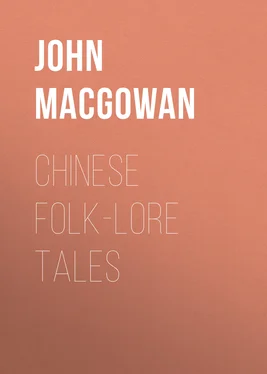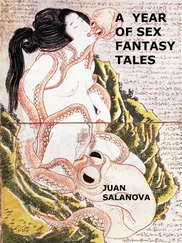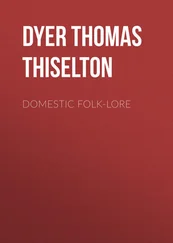John Macgowan - Chinese Folk-Lore Tales
Здесь есть возможность читать онлайн «John Macgowan - Chinese Folk-Lore Tales» — ознакомительный отрывок электронной книги совершенно бесплатно, а после прочтения отрывка купить полную версию. В некоторых случаях можно слушать аудио, скачать через торрент в формате fb2 и присутствует краткое содержание. Жанр: foreign_prose, foreign_antique, на английском языке. Описание произведения, (предисловие) а так же отзывы посетителей доступны на портале библиотеки ЛибКат.
- Название:Chinese Folk-Lore Tales
- Автор:
- Жанр:
- Год:неизвестен
- ISBN:нет данных
- Рейтинг книги:4 / 5. Голосов: 1
-
Избранное:Добавить в избранное
- Отзывы:
-
Ваша оценка:
- 80
- 1
- 2
- 3
- 4
- 5
Chinese Folk-Lore Tales: краткое содержание, описание и аннотация
Предлагаем к чтению аннотацию, описание, краткое содержание или предисловие (зависит от того, что написал сам автор книги «Chinese Folk-Lore Tales»). Если вы не нашли необходимую информацию о книге — напишите в комментариях, мы постараемся отыскать её.
Chinese Folk-Lore Tales — читать онлайн ознакомительный отрывок
Ниже представлен текст книги, разбитый по страницам. Система сохранения места последней прочитанной страницы, позволяет с удобством читать онлайн бесплатно книгу «Chinese Folk-Lore Tales», без необходимости каждый раз заново искать на чём Вы остановились. Поставьте закладку, и сможете в любой момент перейти на страницу, на которой закончили чтение.
Интервал:
Закладка:
It may here be explained that it was a custom in the early days of the history of China to allow any young maiden who was reluctant to have her husband chosen for her by her parents, to make use of what was called "The throwing of the embroidered ball" in order to discover the man whom the gods intended her to marry. This ball was made of some soft material, wrapped round with a piece of red silk which was covered with variegated figures, worked by the damsel's own hands and emblematic of the love by which the hearts of husband and wife are bound indissolubly to each other. It was firmly believed by every maiden of this romantic type that the man who was struck by the ball from her fair hands was the one whom Heaven had selected as her husband; and no parent would ever dream of refusing to accept a choice made in this way.
Whilst Kwang-Jui was gazing in amused wonder at the symbol which he understood so well, a messenger from the house from which it had been thrown requested him in respectful tones to accompany him to his master, who desired to discuss with him a most important subject.
As Kwang-Jui entered the house, he discovered to his astonishment that it belonged to the Prime Minister, who received him with the utmost cordiality, and after a long conversation declared that he was prepared to submit to the will of the gods, and to accept him as his son-in-law. Kwang-Jui was of course in raptures at the brilliant prospects which were suddenly opening up before him. The day, indeed, was a red-letter one—an omen, he hoped, that fate was preparing to pour down upon him good fortune in the future. In one brief day he had been hailed as the most distinguished scholar in the Empire, and he had also been acknowledged as the son-in-law of the Empire's greatest official, who had the power of placing him in high positions where he could secure not only honours but also wealth sufficient to drive poverty away for ever from his home.
As there was no reason for delay, the hand of the beautiful daughter who had thrown the embroidered ball, and who was delighted that Heaven had chosen for her such a brilliant husband, was bestowed upon him by her parents. Times of great rejoicing succeeded, and when Kwang-Jui thought of the quiet and uninteresting days when he was still unknown to fame, and contrasted them with his present life, it seemed to him as though he were living in fairy-land. His wildest dreams in the past had never conjured up anything so grand as the life he was now leading. In one bound he had leaped from comparative poverty to fame and riches.
After a time, through the influence of his father-in-law, and with the hearty consent of the Emperor, who remembered what a brilliant student he had been, Kwang-Jui was appointed to be Prefect of an important district in the centre of China.
Taking his bride with him, he first of all proceeded to his old home, where his mother was waiting with great anxiety to welcome her now famous son. The old lady felt rather nervous at meeting her new daughter-in-law, seeing that the latter came from a family which was far higher in rank and far more distinguished than any in her own clan. As it was very necessary that Kwang-Jui should take up his office as Prefect without any undue delay, he and his mother and his bride set out in the course of a few days on the long journey to the distant Prefecture, where their lives were destined to be marred by sorrow and disaster.
They had travelled the greater part of the way, and had reached a country market-town that lay on their route, when Kwang-Jui's mother, worn out with the toilsome journey, fell suddenly ill. The doctor who was called in shook his head and pronounced that she was suffering from a very serious complaint, which, whilst not necessarily fatal, would necessitate a complete rest for at least two or three months. Any further travelling must therefore be abandoned for the present, as it might be attended with the most serious consequences to the old lady.
Both husband and wife were greatly distressed at the unlucky accident which placed them in such an awkward position at this wayside inn. They were truly grieved at the serious sickness of their mother, but they were still more puzzled as to what course they should pursue in these most trying circumstances. The Imperial Rescript appointing Kwang-Jui to his office as Prefect commanded him to take up his post on a certain definite date. To delay until his mother would again be able to endure the fatigues of travel was out of the question, as disobedience to the Emperor's orders would be attended by his grave displeasure. Eventually his mother suggested that he and his wife should go on ahead, and that after taking up the duties of his office he should then delegate them for a time to his subordinates and return to take her home.
This advice Kwang-Jui decided to carry out; though with great reluctance, as he was most unwilling to abandon his mother to the care of strangers. He accordingly made all the arrangements he possibly could for her comfort whilst they were parted from each other; he had servants engaged to attend upon her, and he left sufficient money with her to meet all her expenses during his absence.
With a mind full of consideration for his mother, and wishing to show how anxious he was to give her pleasure, he went out into the market of the town to see if he could buy a certain kind of fish of which she was passionately fond. He had hardly got outside the courtyard of the inn, when he met a fisherman with a very fine specimen of the very fish that he wished to purchase.
As he was discussing the price with the man, a certain something about the fish arrested his attention. There was a peculiar look in its eyes that seemed full of pathos and entreaty. Its gaze was concentrated upon him, so human-like and with such intensity, that he instinctively felt it was pleading with him to do something to deliver it from a great disaster. This made him look at it more carefully, and to his astonishment the liquid eyes of the fish were still fixed upon him with a passionate regard that made him quiver with excitement.
"Fisherman," he said, "I want to buy this fish, and here is the price that you ask for it. I have but one stipulation to make, and that is that you take it to the river from which you caught it, and set it free to swim away wherever it pleases. Remember that if you fail to carry out this part of the bargain, great sorrow will come upon you and your home."
Little did either of them dream that the fish was the presiding God of the River, who for purposes of his own had transformed himself into this form, and who, while swimming up and down the stream had been caught in the net of the fisherman.
After travelling for some hours Kwang-Jui and his wife came to the bank of a considerable river, where they hired a large boat to convey them to their destination.
The boatman they engaged was a man of very low character. He had originally been a scholar and of good family, but, utterly depraved and immoral, he had gradually sunk lower and lower in society, until at last he had been compelled to fly from his home to a distant province, and there to engage in his present occupation in order to earn his living. The large amount of property which Kwang-Jui had with him seemed to arouse the worst passions in this man, and while the boat was being carried along by a fair wind and a flowing tide, he planned in his mind how he was to become the possessor of it. By the time that they reached the place where they were to anchor for the night, he had already decided what measures he should adopt.
A little after midnight, accordingly, he crept stealthily towards the place where Kwang-Jui was sleeping, stabbed him to the heart and threw his body into the fast-flowing river. He next threatened the wife that if she dared to utter a sound, he would murder her also and send her to join her husband in the Land of Shadows. Paralyzed with terror, she remained speechless, only a stifled sob and groan now and again breaking from her agonized heart. Her first serious idea was to commit suicide, and she was preparing to fling herself into the water that gurgled along the sides of the boat, when she was restrained by the thought that if she destroyed herself, she would never be able to avenge her husband's death or bring punishment upon the villain who had just murdered him.
Читать дальшеИнтервал:
Закладка:
Похожие книги на «Chinese Folk-Lore Tales»
Представляем Вашему вниманию похожие книги на «Chinese Folk-Lore Tales» списком для выбора. Мы отобрали схожую по названию и смыслу литературу в надежде предоставить читателям больше вариантов отыскать новые, интересные, ещё непрочитанные произведения.
Обсуждение, отзывы о книге «Chinese Folk-Lore Tales» и просто собственные мнения читателей. Оставьте ваши комментарии, напишите, что Вы думаете о произведении, его смысле или главных героях. Укажите что конкретно понравилось, а что нет, и почему Вы так считаете.












